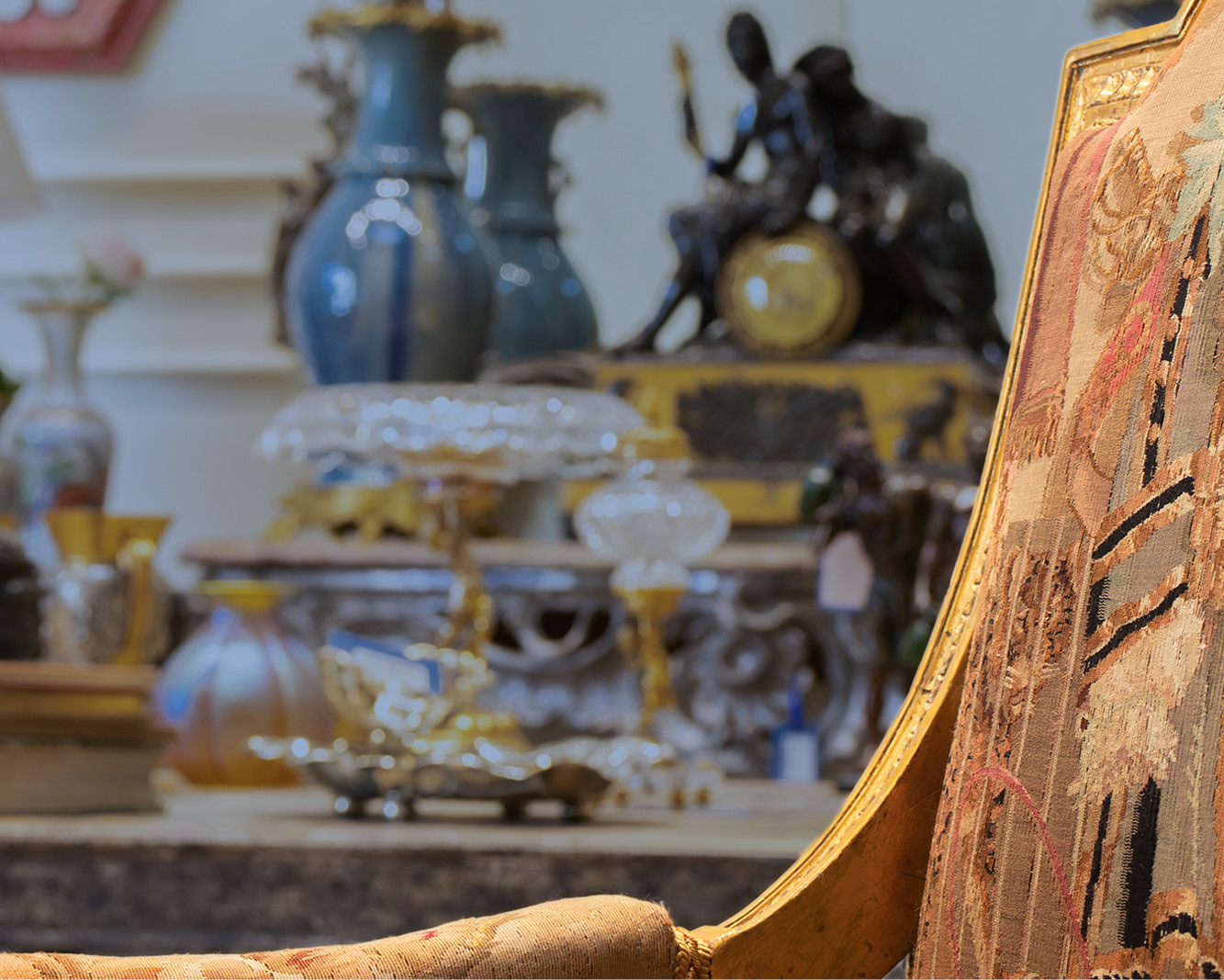Antiques Guide

If you are looking for something truly unique for your home, you know that the hunt never ends. Antique items will add a flare to any interior, but how to find the right piece? We’ve prepared a detailed guide!
1. What gives value to antiques?
Materials and techniques.
Many antiques are notable for their craftsmanship since they were created before factories of mass production were established: such extremely rare and unique pieces are almost impossible to replicate. The use of materials such as: marble, solid wood, porcelain, silver, bronze, and of course, gold – are precious, especially when it’s hand-made.
Artisan name.
Many art and furniture pieces can be identified by a creator’s signature or stamp. In this case, you are not only purchasing the item, but the artists talent and exceptional work which will have a reputation that will live on for many years to come.
Provenance.
Or, in other words, a story of ownership. Imagine the excitement of having a piece that previously belonged to a monarch or a celebrity!
Rarity, age, and condition.
Unique, hand-made items will always be more valuable than mass-production analogs. The older the piece is, and the better the condition makes it much more precious and rare.
2. How to define artifacts age?
The term “antique” comes from Latin: antiquus; ‘old,’ ‘ancient’. Boutiques around the world use special terminology for such items:
Antiquities
This word refers to ancient civilizations from the beginning of recorded human history to 500 AD (around the Fall of Rome). Usually they can only be found in museums. Collections focus on Greek, Roman, Egyptian, and Mesopotamian art.
Antiques
Legally this term definition varies in different countries, but usually it applies to items being at least 100 years old.
Vintage
Adapted from the Old French “vendage” – the word vintage described the year and location of a wine. Now it can be applied to everything in fashion, accessories, and furniture, dated from early 1900’s to about 1960’s.
Retro
From the French ‘rétro’, meaning “to move backward”. Any item at least 15 years old can count as retro, but usually not older than 1970’s. Sometimes it can also stand for revivals of old styles, even if the item is newly produced.
Contemporary
Revivals of different styles can be made in any period of history. If a brand-new item speaks to you, then why not? Plus, investment in modern art will bring the profit in some time.
3. How to integrate antiques into interior?
Your home décor must reflect your personality and speak for itself!
If you are passionate about a particular style or period, you can easily turn a dream into a reality, by adding just a few pieces that you are charmed with, it could shift your mood completely. Alternatively, trying to mix and match home décor and furnishings that are completely different in terms of aesthetics, age and origins can create an eclectic space. Adding a unique antique piece as a focal point to your modern (sometimes even hi-tech) design – is a major trend now.
There are many more interior design tips we’d like to share with you! Stay inspired and find what we brought for you this time: www.cabinetofcuriosity.me
Sincerely,
Cabinet of Curiosity,
a one-stop destination for designers, collectors, and antique lovers.














